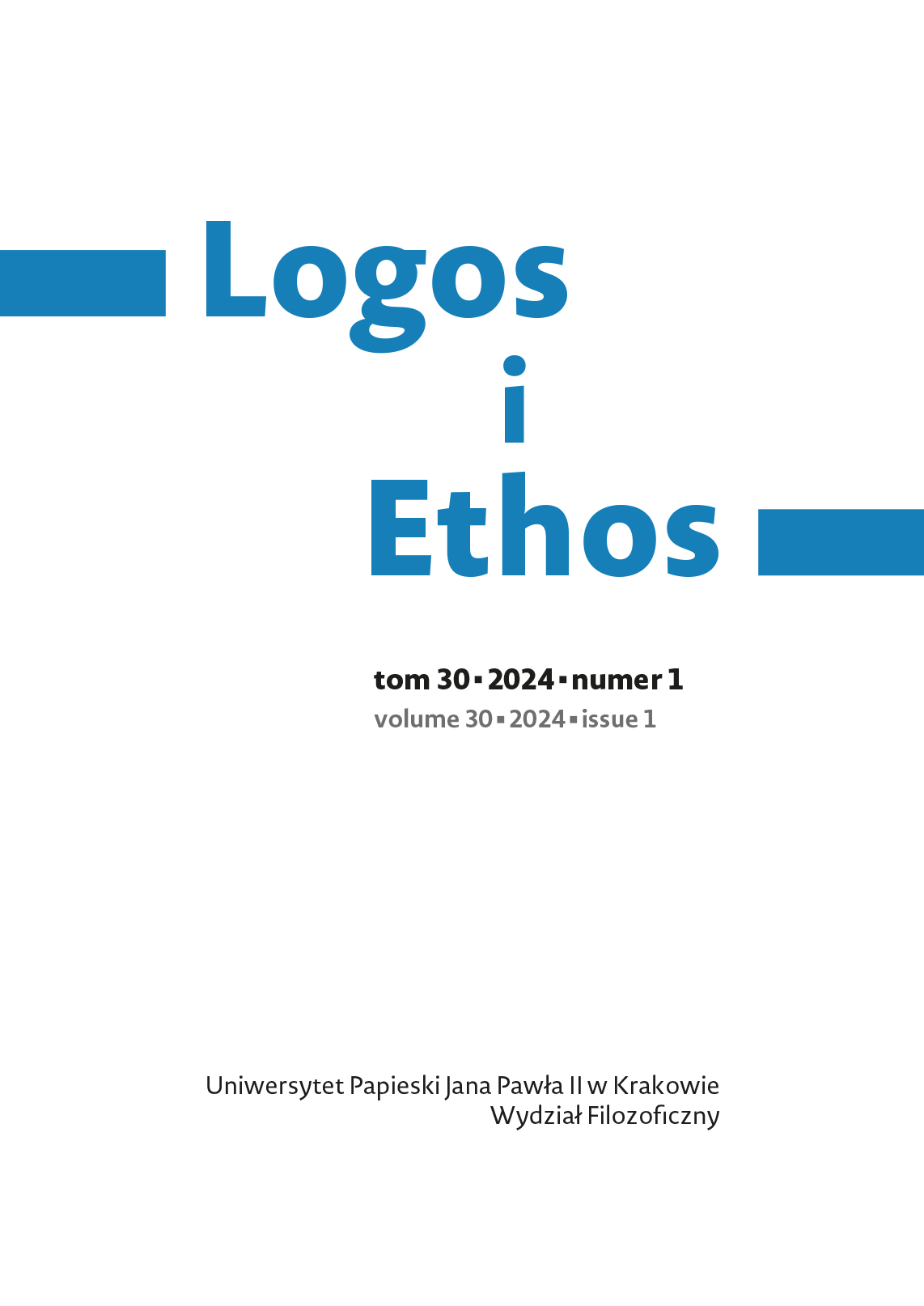Anti-reductionism in the epistemology of testimony contrasted with authority and information-source markers in natural languages
DOI:
https://doi.org/10.15633/lie.30105Keywords:
testimony, belief, anti-reductionism, evidentiality, conjunct/disjunct markingAbstract
The paper aims to show that anti-reductionism in the epistemology of testimony is difficult to reconcile with the existence of grammatical categories such as egophoricity (conjunct/disjunct) or evidentiality, whose markers (obligatory in many languages) encode the speaker’s access to the direct information source, or lack thereof. Markers of these categories set apart the information which is based on the speaker’s perception, or his/her direct experience, from someone else’s testimony. Thus, egophoric and evidential markers do not allow for regarding testimony as basic and direct justification for belief on a par with perception – in the way anti-reductionists deem correct. This results in a paradoxical situation as anti-reductionism draws support from the philosophy of common sense and Thomas Reid’s “first principles of cognition”, which are said to be reflected in the structure of natural languages. However, the anti-reductionist stance is clearly incompatible with the grammatical structure of at least a quarter of all languages.
References
Aikhenvald A. Y., A Grammar of Tariana, From Northwest Amazonia, Cambridge 2003.
Aikhenvald A. Y., Evidentiality, Oxford 2004.
Ajdukiewicz K., Zagadnienie uzasadniania, „Studia Filozoficzne” (1963) nr 2, s. 4–13.
Arnauld A., Nicole P., Logika czyli sztuka myślenia, tłum. S. Romahnowa, Warszawa 1958.
Barnes J., Evidentials in the Tuyuca verb, „International Journal of American Linguistics” 50 (1984), s. 255–271.
Coady C. A. J., Testimony. A Philosophical Study, Oxford 1992.
Creissels D., Remarks on so-called ‘conjunct/disjunct’ systems, w: Syntax of the World’s Languages III, Berlin 2008, http://www.deniscreissels.fr/public/Creissels-conj.disj.pdf (10.06.2014).
Curnow T. J., Conjunct/disjunct marking in Awa Pit, „Linguistics” 40 (2002) nr 3, s. 611–627.
Descartes R. /Kartezjusz, Rozprawa o metodzie właściwego kierowania rozumem i poszukiwania prawdy w naukach, tłum. T. Żeleński-Boy, Warszawa 1980.
Evidentials: Turkic, Iranian and Neighbouring Languages, eds. L. Johanson, B. Utas, Berlin 2000.
Gettier E., Is justified true belief knowledge?, „Analysis” 23 (1963), s. 121–123.
Goldman A. I., Knowledge in a Social World, Oxford 1999.
Hale A., Person markers: finite conjunct and disjunct verb forms in Newari, w: Papers in Southeast Asian Linguistics 7, ed. R. Trail, Canberra 1980, s. 95–106.
Hardman M. J., Data-source marking in the Jaqi languages, w: Evidentiality: The Linguistic Coding of Epistemology, eds. W. Chafe, J. Nichols, Norwood 1986, s. 113–136.
Hume D., Badania dotyczące rozumu ludzkiego, tłum. J. Łukasiewicz, K. Twardowski, Warszawa 1977.
Jacobsen W. H., The heterogeneity of evidentials in Makah, w: Evidentiality: The Linguistic Coding of Epistemology, eds. W. Chafe, J. Nichols, Norwood 1986, s. 3–28.
Leonard N., Epistemological problems of testimony, w: The Stanford Encyclopedia of Philosophy (Spring 2023 Edition), eds. E. N. Zalta, U. Nodelman, https://plato.stanford.edu/archives/spr2023/entries/testimony-episprob/ (10.07.2023).
Lee D. D., Conceptual implications of an Indian language, „Philosophy of Science” 5 (1938), s. 81–102.
Locke J., Rozważania dotyczące rozumu ludzkiego, tłum. B. Gawecki, Warszawa 1955.
Łukasiewicz E., Linguistic Evidentiality and Epistemic Justification of Beliefs, Bydgoszcz 2018.
McMyler B., Testimony, Trust and Authority, Oxford 2011.
Moran R., Getting told and being believed, w: The Epistemology of Testimony, eds. J. Lackey, E. Sosa, Oxford 2006, s. 272–306.
Oswalt R. W., The evidential system of Kashaya, w: Evidentiality: The Linguistic Coding of Epistemology, eds. W. Chafe, J. Nichols, Norwood 1986, s. 29–45
Platon, Teajtet, tłum. W. Witwicki, Warszawa 1959.
Plungian V. A., Types of verbal evidentiality marking: An overview, w: Linguistic Realization of Evidentiality in European Languages, eds. G. Diewald, E. Smirnova, Berlin 2010, s. 15–58.
Post M. W., Person-sensitive TAME marking in Galo, w: Functional-Historical Approaches to Explanation, eds. T. Thornes, E. Andvik, G. Hyslop, J. Jansen, Amsterdam 2013, s. 107–130.
Reid T., Rozważania o władzach poznawczych człowieka, tłum. M. Hempoliński, Warszawa 1975.
Reid T., An Inquiry into the Human Mind on the Principles of Common Sense, University Park 2000.
Św. Tomasz z Akwinu, O poznaniu Boga. Super Boetium De Trinitate. Wydanie łacińsko-polskie, tłum. P. Lichacz, M. Przanowski, M. Olszewski, Kraków 2005.
Weber D. J., A Grammar of Huallaga (Huánuco) Quechua, Berkeley 1989.
Willett T., A cross-linguistic survey of the grammaticalization of evidentiality, „Studies in Language” 12 (1988), s. 51–97.
Wolterstorff N., John Locke and the Ethics of Belief, Cambridge 1996.
Wolterstorff N., Reid on common sense, w: The Cambridge Companion to Thomas Reid, eds. T. Cuneo, R. Van Woudenberg, Cambridge 2004, s. 77–100.
Zagzebski T. L., Epistemic Authority. A Theory of Trust, Authority, and Autonomy of Belief, Oxford 2012.
Downloads
Published
Issue
Section
License

This work is licensed under a Creative Commons Attribution 4.0 International License.
Authors who publish with this journal agree to the following terms:
- Authors retain the copyright and full publishing rights without restrictions, and grant the journal right of first publication with the work simultaneously licensed under a Creative Commons Attribution 4.0 International License that allows others to share the work with an acknowledgement of the work's authorship and initial publication in this journal.
- Authors are able to enter into separate, additional contractual arrangements for the non-exclusive distribution of the journal's published version of the work (e.g., post it to an institutional repository or publish it in a book), with an acknowledgement of its initial publication in this journal.
- Authors are permitted and encouraged to post their work online (e.g., in institutional repositories or on their website) prior to and during the submission process, as it can lead to productive exchanges, as well as earlier and greater citation of published work (See The Effect of Open Access).

